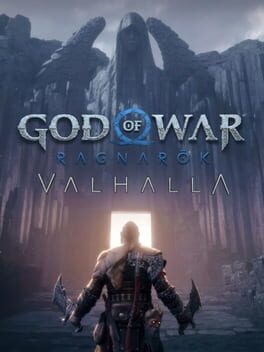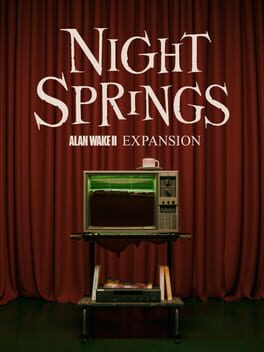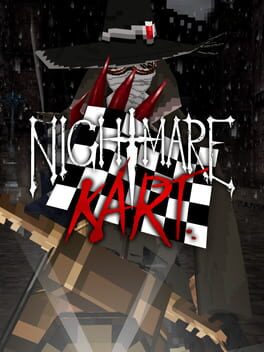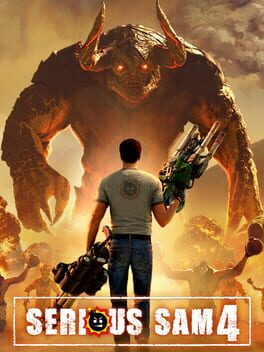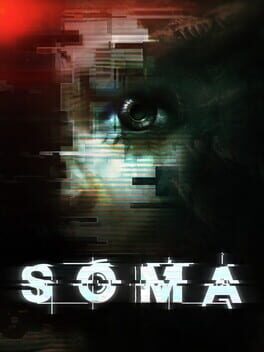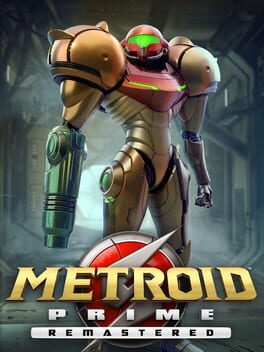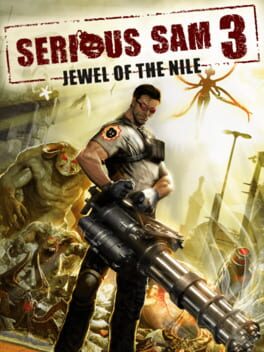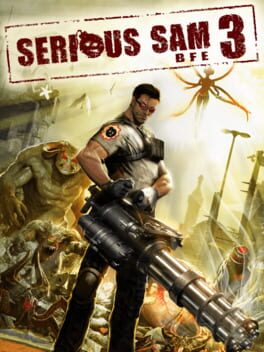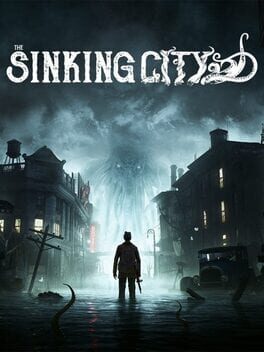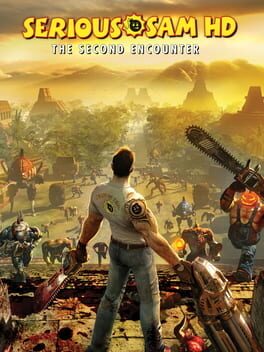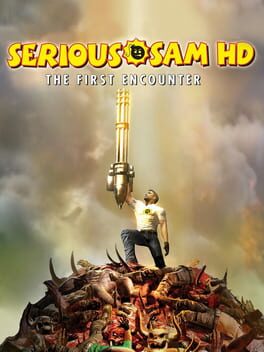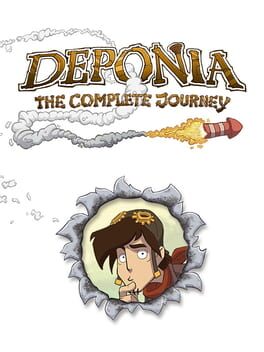Dirk_McThermot
I don't think it fully realizes its potential as a rogue lite experience, but the newer GoW combat system is still as enjoyable as ever. The structure of Valhalla being an extended therapy session for Kratos (and Mimir) is a good example of storytelling via gameplay; though the frequent exchanges of dialogue in nearly every period of downtime are still doing a lot of heavy lifting. Note that this isn't a bad thing since the writing and performances are still spot-on. And what the finale lacks in extravagance is more than made up for with a satisfying ending to Kratos' character arc. In many aspects, this DLC is essentially an extended epilogue allowing his story to fully conclude while not demanding more than a few hours of your time. And it's free, so there's literally no reason not to play it if you're a fan.
Episode 1: Number One Fan
This was my least favorite of the three episodes. It's basically nothing but humor interspersed with some combat encounters. Rose is definitely a fun character though, and her weapon reloading quips are adorable. Matthew Poretta's vocal performance is also very enjoyable as the evil twin brother of The Writer and he gave me several good laughs.
Episode 2: North Star
When the trailer for this DLC dropped, I was stunned to see that we'd be playing as Jesse Faden! Sadly this episode also doesn't really live up to its potential, as it ends up being a sort of parody of Control and not much more. But it's still an improvement over the previous one for several reasons, including its connections to that other game and its much more intriguing Twilight Zone-esque ending. AW2 continues to evolve into a sequel to other Remedy titles beyond AW1 with this episode. Speaking of...
Episode 3: Time Breaker
My boy Tim Breaker finally gets his deserved time in the spotlight. This is easily my favorite episode. It gives us SO MANY juicy lore implications to chew on. There are at least a couple segments that involve no gameplay, yet manage to be incredibly effective at conveying the tone and story. This episode stands significantly higher than the others, and it bumps up my rating by a half star. Honestly, this episode is what I was hoping all of the episodes would be. I also hope we get to see more of Shawn Ashmore in this multiverse.
Leave it to Remedy - or rather, Poison Pill? - to give us so many new threads, clues, and questions about the overall meaning of their body of work. I'm left scratching my head about a few things, but honestly I'm totally okay with that.
This was my least favorite of the three episodes. It's basically nothing but humor interspersed with some combat encounters. Rose is definitely a fun character though, and her weapon reloading quips are adorable. Matthew Poretta's vocal performance is also very enjoyable as the evil twin brother of The Writer and he gave me several good laughs.
Episode 2: North Star
When the trailer for this DLC dropped, I was stunned to see that we'd be playing as Jesse Faden! Sadly this episode also doesn't really live up to its potential, as it ends up being a sort of parody of Control and not much more. But it's still an improvement over the previous one for several reasons, including its connections to that other game and its much more intriguing Twilight Zone-esque ending. AW2 continues to evolve into a sequel to other Remedy titles beyond AW1 with this episode. Speaking of...
Episode 3: Time Breaker
My boy Tim Breaker finally gets his deserved time in the spotlight. This is easily my favorite episode. It gives us SO MANY juicy lore implications to chew on. There are at least a couple segments that involve no gameplay, yet manage to be incredibly effective at conveying the tone and story. This episode stands significantly higher than the others, and it bumps up my rating by a half star. Honestly, this episode is what I was hoping all of the episodes would be. I also hope we get to see more of Shawn Ashmore in this multiverse.
Leave it to Remedy - or rather, Poison Pill? - to give us so many new threads, clues, and questions about the overall meaning of their body of work. I'm left scratching my head about a few things, but honestly I'm totally okay with that.
2024
2020
I know this is a hot take, but I think this is the best game in the series (though I haven't played SS2). It's a piece of shit, but damn, it is a FUN piece of shit.
First things first, yes - the optimization really is as bad as everyone says. This game has the worst texture pop-in I have ever seen. I'm happy to see that Croteam retired the Serious engine in favor of Unreal Engine 5 for The Talos Principle 2. I can only dream that we'll get an Unreal Serious Sam one day.
The writing and dialogue? Also terrible. However...I'll be honest, maybe it's just Stockholm syndrome, but I actually found myself getting a bit more in the groove of this game's sense of humor as it went on. It's eye-rollingly juvenile all the time, and yet I'd still take this over the Whedonism-filled "uhh, did I really just do that?" style of writing that has poisoned media for the past decade. Also the oddly quiet cutscenes, dead-eyed character models, and sluggish animations drag down the campaign as a cinematic experience.
With those major cons out of the way, I can get into why I actually kind of loved this game: the horde-slaying action has never been more satisfying. It's basically the same type of gameplay that every other Serious Sam title has given us, but in SS4, we have VASTLY improved level design, encounter design, and enemy design. Additionally, the environments are much more appealing to explore and look at, thanks to the wider variety of locales and color palettes. Contrast all of this with a sequel like Doom Eternal, which improved upon its predecessors by offering a more complex combat puzzle for its main appeal, SS4 simply does even more of the same old Serious Sam - but it does this fairly brilliantly. One thing that both of these games have in common is that their final levels are absolutely bonkers.
Lastly, I'd like to gush about how Sam himself is a gigachad. He's like the Doomslayer if he actually talked and was more of an optimist. I love how he never goes through a typical character arc of losing faith in himself; it's always just about getting the right tools (guns) and position (backing away from alien hordes) for the job at hand. That's one addition to SS4 that I really appreciate compared to the past games - the presence of other characters who fight alongside him gives him the chance to have much more friendly banter.
I highly recommend checking out this game if you're into boomer/horde shooters. It has a lot of terrible aspects, but it still manages to be a blast.
First things first, yes - the optimization really is as bad as everyone says. This game has the worst texture pop-in I have ever seen. I'm happy to see that Croteam retired the Serious engine in favor of Unreal Engine 5 for The Talos Principle 2. I can only dream that we'll get an Unreal Serious Sam one day.
The writing and dialogue? Also terrible. However...I'll be honest, maybe it's just Stockholm syndrome, but I actually found myself getting a bit more in the groove of this game's sense of humor as it went on. It's eye-rollingly juvenile all the time, and yet I'd still take this over the Whedonism-filled "uhh, did I really just do that?" style of writing that has poisoned media for the past decade. Also the oddly quiet cutscenes, dead-eyed character models, and sluggish animations drag down the campaign as a cinematic experience.
With those major cons out of the way, I can get into why I actually kind of loved this game: the horde-slaying action has never been more satisfying. It's basically the same type of gameplay that every other Serious Sam title has given us, but in SS4, we have VASTLY improved level design, encounter design, and enemy design. Additionally, the environments are much more appealing to explore and look at, thanks to the wider variety of locales and color palettes. Contrast all of this with a sequel like Doom Eternal, which improved upon its predecessors by offering a more complex combat puzzle for its main appeal, SS4 simply does even more of the same old Serious Sam - but it does this fairly brilliantly. One thing that both of these games have in common is that their final levels are absolutely bonkers.
Lastly, I'd like to gush about how Sam himself is a gigachad. He's like the Doomslayer if he actually talked and was more of an optimist. I love how he never goes through a typical character arc of losing faith in himself; it's always just about getting the right tools (guns) and position (backing away from alien hordes) for the job at hand. That's one addition to SS4 that I really appreciate compared to the past games - the presence of other characters who fight alongside him gives him the chance to have much more friendly banter.
I highly recommend checking out this game if you're into boomer/horde shooters. It has a lot of terrible aspects, but it still manages to be a blast.
2024
It took an hour before this game started to really click for me, but now I find myself humming the theme song and imagining what my next run will be like throughout each day. It has a low barrier to entry, just the right mix of luck and strategy, and it's extremely easy to pick up and play for a short while to fill in gaps in your daily routine (but you may also be hooked on it for hours at a time). It doesn't require a huge time commitment; even completing a successful run from start to finish doesn't take very long. This also means that when you lose a run, it doesn't feel particularly demoralizing - in fact, it makes you more likely to press "new run" to get back into it immediately!
(My rating is 4 stars for now, but it may increase as I continue playing.)
(My rating is 4 stars for now, but it may increase as I continue playing.)
2024
The perfect game for those who like scouring the entire map for secrets and collectibles, and with fun platforming and items to boot. When I accidentally figured out you could do that with the frisbee, I was hooked. Billy Basso packed so much creative energy into this project and it shows all the way through. My biggest complaint is that most of the puzzles are pretty easy, but the few remaining in the endgame are extremely cryptic or hidden in niche places that I totally forgot about. Animal Well demands that you take notes along the way. Or use a walkthrough, like I did. (No shame!)
(I finished this game a while back, but Vaati's 5.5 hour video on the entire story inspired me to come here and leave a review.)
AC6 can be fully completed in a reasonable amount of time, has extremely fun fast-paced action, a strong customization system, and highly memorable characters and story moments. The ice worm mission stands out as a particularly strong highlight, with several of the game's larger-than-life characters forcing themselves to work together in one of the best set pieces of the game. I know I'm going to sound pretentious here, but to be frank, the naysayers who claim this game is lacking in the story department weren't paying attention.
It essentially demands you play through it multiple times in order to get the "true" ending, but it surprisingly doesn't take that long to do it. As you master the combat, you can breeze through most of the levels extremely quickly and nearly every cutscene can be skipped.
I decided that I wouldn't attempt S-ranking every mission at first, but changed my mind after growing to enjoy the game so much that I didn't want to put it down yet. Once I accomplished this challenge, I felt more than satisfied with the amount of time I invested into the game, and considered it done. I'm not sure that I'll ever replay it, but I respect it immensely for simply focusing on its strong aspects and committing to them without trying to pull any nonsense. This is a great game that made me appreciate the mecha genre that much more.
AC6 can be fully completed in a reasonable amount of time, has extremely fun fast-paced action, a strong customization system, and highly memorable characters and story moments. The ice worm mission stands out as a particularly strong highlight, with several of the game's larger-than-life characters forcing themselves to work together in one of the best set pieces of the game. I know I'm going to sound pretentious here, but to be frank, the naysayers who claim this game is lacking in the story department weren't paying attention.
It essentially demands you play through it multiple times in order to get the "true" ending, but it surprisingly doesn't take that long to do it. As you master the combat, you can breeze through most of the levels extremely quickly and nearly every cutscene can be skipped.
I decided that I wouldn't attempt S-ranking every mission at first, but changed my mind after growing to enjoy the game so much that I didn't want to put it down yet. Once I accomplished this challenge, I felt more than satisfied with the amount of time I invested into the game, and considered it done. I'm not sure that I'll ever replay it, but I respect it immensely for simply focusing on its strong aspects and committing to them without trying to pull any nonsense. This is a great game that made me appreciate the mecha genre that much more.
2015
As a survival horror game, Soma succeeds in most aspects. Though I'd be lying if I said the Amnesia method of dealing with enemies didn't frustrate me more than it entertained; that method being to grab their attention, kite them around a looping series of hallways/rooms, and break aggro so you can get what you need. There were a few points where this wasn't even scary, just downright annoying.
The story is interesting and has a very strong hook right from the start. It gets more intriguing as it goes on, and it had my mind racing with predictions and guesses at what future plot twists might turn out to be. Is it possible to be disappointed because of the expectations you set for yourself as you were experiencing a piece of media? I guess it is, because that's what happened to me with Soma. When it ended, I wasn't left with the lasting impact the devs probably hoped I'd feel.
Maybe that's a product of this being a 2015 release. I've seen/played many more sci-fi works of art that delve into the same sort of topics that Soma does, and that worked against this game's favor for me. However, after giving it a few days since I finished the game and thinking about it more, I have grown to appreciate what it accomplishes. Additionally, I like the sound design, environmental visuals, voice acting performances, and general vibe of the game. I'd definitely still recommend it to fans of horror and narrative-focused games.
The story is interesting and has a very strong hook right from the start. It gets more intriguing as it goes on, and it had my mind racing with predictions and guesses at what future plot twists might turn out to be. Is it possible to be disappointed because of the expectations you set for yourself as you were experiencing a piece of media? I guess it is, because that's what happened to me with Soma. When it ended, I wasn't left with the lasting impact the devs probably hoped I'd feel.
Maybe that's a product of this being a 2015 release. I've seen/played many more sci-fi works of art that delve into the same sort of topics that Soma does, and that worked against this game's favor for me. However, after giving it a few days since I finished the game and thinking about it more, I have grown to appreciate what it accomplishes. Additionally, I like the sound design, environmental visuals, voice acting performances, and general vibe of the game. I'd definitely still recommend it to fans of horror and narrative-focused games.
I've been a Metroid fan since childhood and I'd known Prime 1 was consistently ranked as the best or second best of the franchise, alternating with Super Metroid. Since I never had a GameCube, I relished the opportunity to finally get to play this. It's obviously good - it wouldn't have been remastered if it wasn't - but I have to admit it left me disappointed in several aspects that I wasn't expecting.
For context, the last Metroidvania I played before this was Metroid Dread, and I loved it. It felt like a refreshingly modern take on the classic 2D style with excellent boss fights and most of the level backtracking only coming into play with finding optional bonuses and secrets. In stark contrast, Prime is built entirely on the concept of backtracking. The core goal of finding the 12 chozo artifacts is married to the design philosophy of the player coming across something gated behind a lock that can only be unlocked with an ability that will be gained later. As a result, you're destined to have to retread the exact same rooms, obstacles, and enemies dozens of times before finally getting what you're looking for. I know the whole series is built on that design philosophy, but this game pushes it to the extreme.
My other major complaint is that the enemy respawn system is gratuitous, and this point is another reason why the lengthy amount of backtracking got annoying. You'll enter a room, kill all the enemies in it, move to the next room, realize you took the wrong exit after a few moments, return to the prior room, and all the enemies will have already respawned. This got so tiresome that I started simply running through rooms ignoring enemies in the later parts of my playthrough. Regarding bosses, they're okay for the additional challenge they present, but on Normal difficulty they feel like they have way too much HP. Fights went on for so long that I grew bored before they ended.
I'm still glad I got to play this piece of gaming history, especially as a die-hard Metroid fan, but this is my least favorite of the ones I've played. A good game that may have been a masterpiece when it first came out, but by the newer standards both of its own series and of others, it's still somewhat dated.
(One more positive thing: the ambient music absolutely slaps!)
For context, the last Metroidvania I played before this was Metroid Dread, and I loved it. It felt like a refreshingly modern take on the classic 2D style with excellent boss fights and most of the level backtracking only coming into play with finding optional bonuses and secrets. In stark contrast, Prime is built entirely on the concept of backtracking. The core goal of finding the 12 chozo artifacts is married to the design philosophy of the player coming across something gated behind a lock that can only be unlocked with an ability that will be gained later. As a result, you're destined to have to retread the exact same rooms, obstacles, and enemies dozens of times before finally getting what you're looking for. I know the whole series is built on that design philosophy, but this game pushes it to the extreme.
My other major complaint is that the enemy respawn system is gratuitous, and this point is another reason why the lengthy amount of backtracking got annoying. You'll enter a room, kill all the enemies in it, move to the next room, realize you took the wrong exit after a few moments, return to the prior room, and all the enemies will have already respawned. This got so tiresome that I started simply running through rooms ignoring enemies in the later parts of my playthrough. Regarding bosses, they're okay for the additional challenge they present, but on Normal difficulty they feel like they have way too much HP. Fights went on for so long that I grew bored before they ended.
I'm still glad I got to play this piece of gaming history, especially as a die-hard Metroid fan, but this is my least favorite of the ones I've played. A good game that may have been a masterpiece when it first came out, but by the newer standards both of its own series and of others, it's still somewhat dated.
(One more positive thing: the ambient music absolutely slaps!)
Croteam experiments with the level design on this one quite a lot, and it usually doesn't pay off. I played the first 2 levels on Normal and that difficulty is still too hard for me, yet Easy is too easy (which is an issue with the other games in this series that I've played). The approach taken by this DLC seems to be placing more of a focus on fewer hordes of enemies and more heavy enemies that fire at you from a distance, encouraging the use of the sniper rifle much more. The fact of the matter is that staying at range and chipping away at enemies isn't nearly as fun as trying to back away from a swarm and cleaning them up with a big arsenal of weapons.
2011
The level and encounter design got some SERIOUS upgrades this time! The visual enhancements are also a welcome change, along with fewer outdated game design tropes (though a few are still present).
BFE maintains the series' sense of identity and core gameplay with its fast-paced encounters, but it does a far better job and pacing these encounters between each other. For example, the game sometimes presents subterranean sections where you're forced to move slower and fight jumpy enemies in the dark, relying only on your flashlight to see them. It seems unusual in theory but I think it fits right in.
Much like the First and Second Encounters, it culminates in a gauntlet level leading into its final boss. And I'm happy to say that both the gauntlet and the boss are significantly better than those in the previous games. The boss isn't anything too special, but it has easily the best sense of scale and unique mechanics which are required to beat it.
It's safe to say that, despite numerous flaws, I am now a serious fan of Serious Sam.
BFE maintains the series' sense of identity and core gameplay with its fast-paced encounters, but it does a far better job and pacing these encounters between each other. For example, the game sometimes presents subterranean sections where you're forced to move slower and fight jumpy enemies in the dark, relying only on your flashlight to see them. It seems unusual in theory but I think it fits right in.
Much like the First and Second Encounters, it culminates in a gauntlet level leading into its final boss. And I'm happy to say that both the gauntlet and the boss are significantly better than those in the previous games. The boss isn't anything too special, but it has easily the best sense of scale and unique mechanics which are required to beat it.
It's safe to say that, despite numerous flaws, I am now a serious fan of Serious Sam.
2019
I liked Sherlock Holmes: Crimes and Punishments and was intrigued by the premise of this game. But it feels horrible to control. Sherlock Holmes was as well, but it was far more tolerable in that game where combat didn’t exist and the levels were much smaller.
Also, I was very disappointed to see that this one has an open world setting. Really not feeling this style of game anymore, with a few exceptions.
Also, I was very disappointed to see that this one has an open world setting. Really not feeling this style of game anymore, with a few exceptions.
In several ways, this one is superior to the First Encounter. It has less troll-inspired design choices, and generally better combat encounter design. The one exception is the final boss. It's not as badly designed as the final boss of the First Encounter, but it's way too easy for some reason, and this makes it more forgettable.
The level and map design is noticeably worse. Every level is a series of a wide open area with a smaller area on either side. You have to clear those side areas, collect a key item from each, then return to the central area to progress. The game does this so many times that one of the log entries makes a self-aware reference to it with "You should know how this works by now!"
It's not life ruining but it's pretty frustrating when the core gameplay is still as satisfying as it is. I found myself continuing to fall into a flow state many times. Still, I can't really justify a higher rating than this.
The level and map design is noticeably worse. Every level is a series of a wide open area with a smaller area on either side. You have to clear those side areas, collect a key item from each, then return to the central area to progress. The game does this so many times that one of the log entries makes a self-aware reference to it with "You should know how this works by now!"
It's not life ruining but it's pretty frustrating when the core gameplay is still as satisfying as it is. I found myself continuing to fall into a flow state many times. Still, I can't really justify a higher rating than this.
This may be the worst game that I enjoyed playing and would still recommend. But only to fans of boomer shooters. There's a lot of bullshit that many FPS gamers (rightfully) shun these days. The whole game is essentially this:
1. You enter a large, empty space.
2. Dozens of enemies spawn in front of you, and another dozen spawns behind you.
3. You kill them all.
4. You approach the key item or door.
5. Steps 2-4 repeat (maybe more than once).
If you play this, make sure to start on Easy since that's what the devs intended as the "Normal" difficulty (even though there is a difficulty called Normal; baffling decision there, I know).
1. You enter a large, empty space.
2. Dozens of enemies spawn in front of you, and another dozen spawns behind you.
3. You kill them all.
4. You approach the key item or door.
5. Steps 2-4 repeat (maybe more than once).
If you play this, make sure to start on Easy since that's what the devs intended as the "Normal" difficulty (even though there is a difficulty called Normal; baffling decision there, I know).
